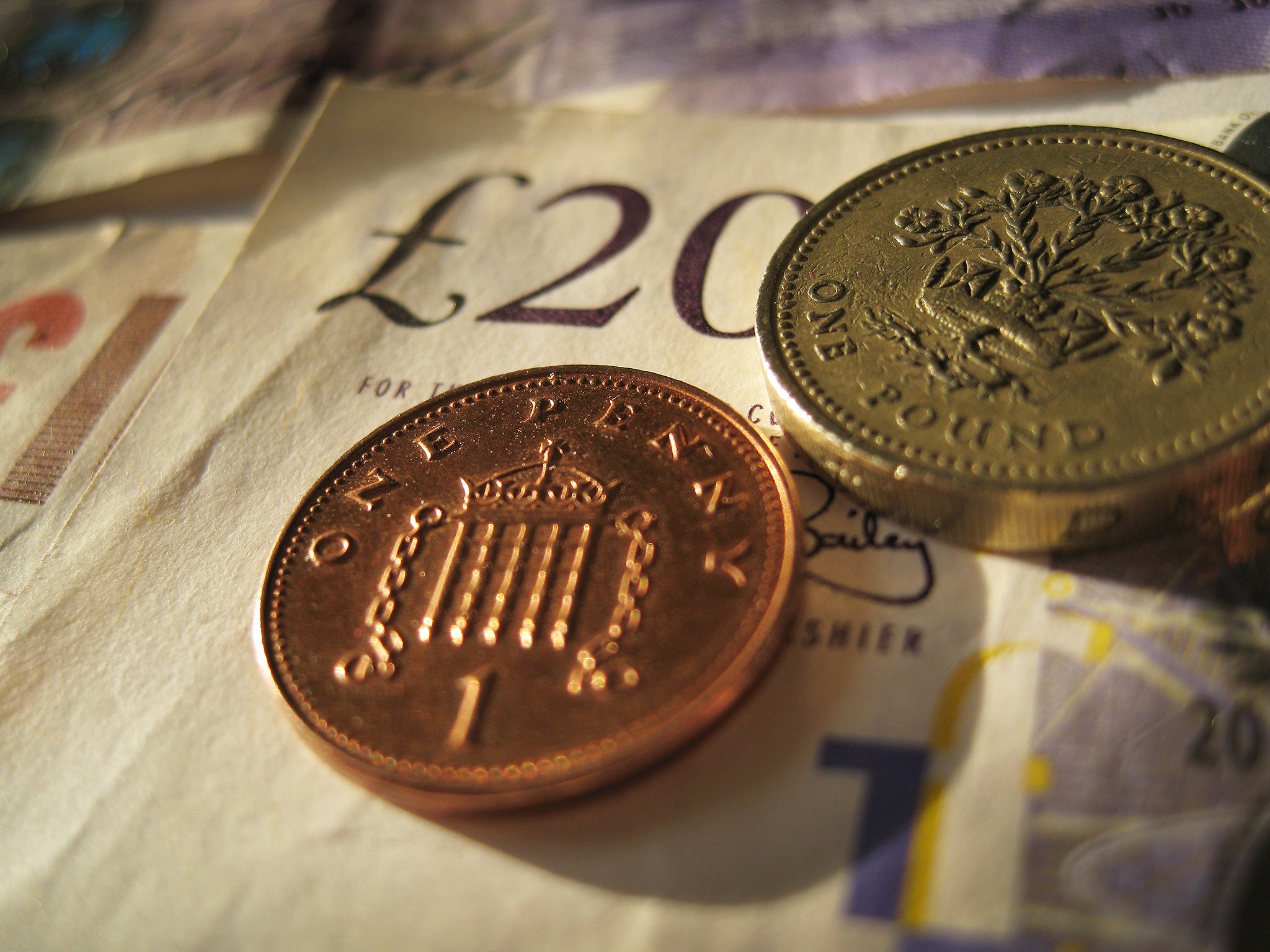Eleven things to do in your 20s to become a millionaire by 30

"In a free-market economy, anyone can make as much money as they want," emphasizes self-made millionaire Steve Siebold, who has also studied over 1,200 of the world's wealthiest people. That applies to 20-somethings.
To help you reach the seven-figure mark by 30, we rounded up 11 pieces of advice from people who became millionaires at a young age and people who have studied hundreds of self-made millionaires.
We can't guarantee millionaire status, but doing these things won't hurt your odds:
1. Focus on earning
"In today's economic environment you cannot save your way to millionaire status," writes Grant Cardone, who went from broke and in debt at 21 to self-made millionaire by 30. "The first step is to focus on increasing your income in increments and repeating that.
"My income was $3,000 a month and nine years later it was $20,000 a month. Start following the money, and it will force you to control revenue and see opportunities."
2. Develop multiple streams of income
One way to earn more is to increase your streams of income.
In author Thomas C. Corley's five-year study of self-made millionaires he found that many of them develop multiple streams of income: 65% had three streams, 45% had four streams, and 29% had five or more streams.
These additional streams include real-estate rentals, stock market investments, and part-ownership in a side business.
"Three streams of income seems to be the magic number for the self-made millionaires in my Rich Habits study, but the more income streams you can create in life, the more secure will your financial house be," he writes.
3. Save to invest, don't save to save
Writes Cardone:
"The only reason to save money is to invest it. Put your saved money into secured, sacred (untouchable) accounts. Never use these accounts for anything, not even an emergency. This will force you to continue to follow step one (increase income). To this day, at least twice a year, I am broke because I always invest my surpluses into ventures I cannot access."
Investing is not as complicated or daunting as we make it out to be. The simplest starting point is to contribute to your 401(k) if your employer offers one, and take full advantage of your company's 401(k) match program — which is essentially free money — if it has one.
Next, consider contributing money toward a Roth IRA or traditional IRA, individual retirement accounts with different contribution limits and tax structures — which one you can use depends on your income. If you still have money left over, you can research low-cost index funds, which Warren Buffett recommends, and look into the online-investment platforms known as "robo-advisers."
The key to consistently setting aside money is to make it automatic. That way, you'll never even see the money you're contributing and you'll learn to live without it.
4. Be decisive
"Avoid decision fatigue," writes Tucker Hughes, who became a millionaire by 22. "Attention is a finite daily resource and can be a bottleneck on productivity. No matter the mental stamina developed over time, there is always going to be a threshold where you break down and your remaining efforts for the day become suboptimal.
"Conserve your mental power by making easily reversible decisions as quickly as possible and aggressively planning recurring actions so you can execute simple tasks on autopilot. I know what I am wearing to work and eating for breakfast each day next week. Do you?"
Hughes isn't the only one who believes in developing decisiveness. After studying over 500 millionaires, journalist and author Napoleon Hill found that they all shared this quality.
"Analysis of several hundred people who had accumulated fortunes well beyond the million dollar mark disclosed the fact that every one of them had the habit of reaching decisions promptly," Hill wrote in his 1937 personal-finance classic "Think and Grow Rich."
5. Don't show off — show up
"I didn't buy my first luxury watch or car until my businesses and investments were producing multiple secure flows of income," writes Cardone. "I was still driving a Toyota Camry when I had become a millionaire. Be known for your work ethic, not the trinkets that you buy."

6. Change your mindset about money
"Getting rich begins with the way you think and what you believe about making money," self-made millionaire Steve Siebold explains.
At the end of the day, "The secret has always been the same: thinking," he emphasizes. While the masses believe becoming wealthy is out of their control, rich people know that making money is really an inside job."
7. Invest in yourself
"The safest investment I've ever made is in my future," writes Hughes. "Read at least 30 minutes a day, listen to relevant podcasts while driving and seek out mentors vigorously. You don't just need to be a master in your field, you need to be a well-rounded genius capable of talking about any subject whether it is financial, political or sports related. Consume knowledge like air and put your pursuit of learning above all else."
Many modern-day successful and wealthy people are voracious readers. Take Warren Buffett, for example, who estimates that 80% of his working day is dedicated to reading.
8. Ditch the steady paycheck
Rich people are typically self-employed and determine the size of their own paycheck, Siebold writes: "It's not that there aren't world-class performers who punch a time clock for a paycheck, but for most this is the slowest path to prosperity, promoted as the safest. The great ones know self-employment is the fastest road to wealth."
While the world-class continue starting businesses and building fortunes, average people settle for steady paychecks and miss out on the opportunity to accumulate great wealth.
"The masses almost guarantee themselves a life of financial mediocrity by staying in a job with a modest salary and yearly pay raises," Siebold says.
9. Set goals and visualize achieving them
If you want to make more money, you have to have a clear goal and then a specific plan for how to achieve that goal. Money won't just appear — you have to work at it.
Rich people choose to commit to attaining wealth. It takes focus, courage, knowledge, and a lot of effort, self-made millionaire T. Harv Eker emphasizes, and it's possible if you have precise goals and a clear vision: "The number one reason most people don't get what they want is that they don't know what they want. Rich people are totally clear that they want wealth."

10. Start hanging out with people you admire
Andrew Carnegie, who started with nothing before becoming the richest man in the US, credits all of his riches to one principle: the Master Mind.
The idea is to surround yourself with talented people who share your vision, because the alignment of several smart and creative minds is exponentially more powerful than just one.
Plus, we become like the people we associate with, which is why the rich tend to associate with others who are rich.
"In most cases, your net worth mirrors the level of your closest friends," explains Siebold. "Exposure to people who are more successful than you are has the potential to expand your thinking and catapult your income. The reality is, millionaires think differently from the middle class about money, and there's much to be gained by being in their presence."
11. Shoot for £10 million, not £1 million
"The single biggest financial mistake I've made was not thinking big enough," writes Cardone. "I encourage you to go for more than a million. There is no shortage of money on this planet, only a shortage of people thinking big enough."
Read more:
• This chart is easy to interpret: It says we're screwed
• How Uber became the world's most valuable startup
• These 4 things could trigger the next crisis in Europe
Read the original article on Business Insider UK. © 2016. Follow Business Insider UK on Twitter.
Join our commenting forum
Join thought-provoking conversations, follow other Independent readers and see their replies
Comments
Bookmark popover
Removed from bookmarks